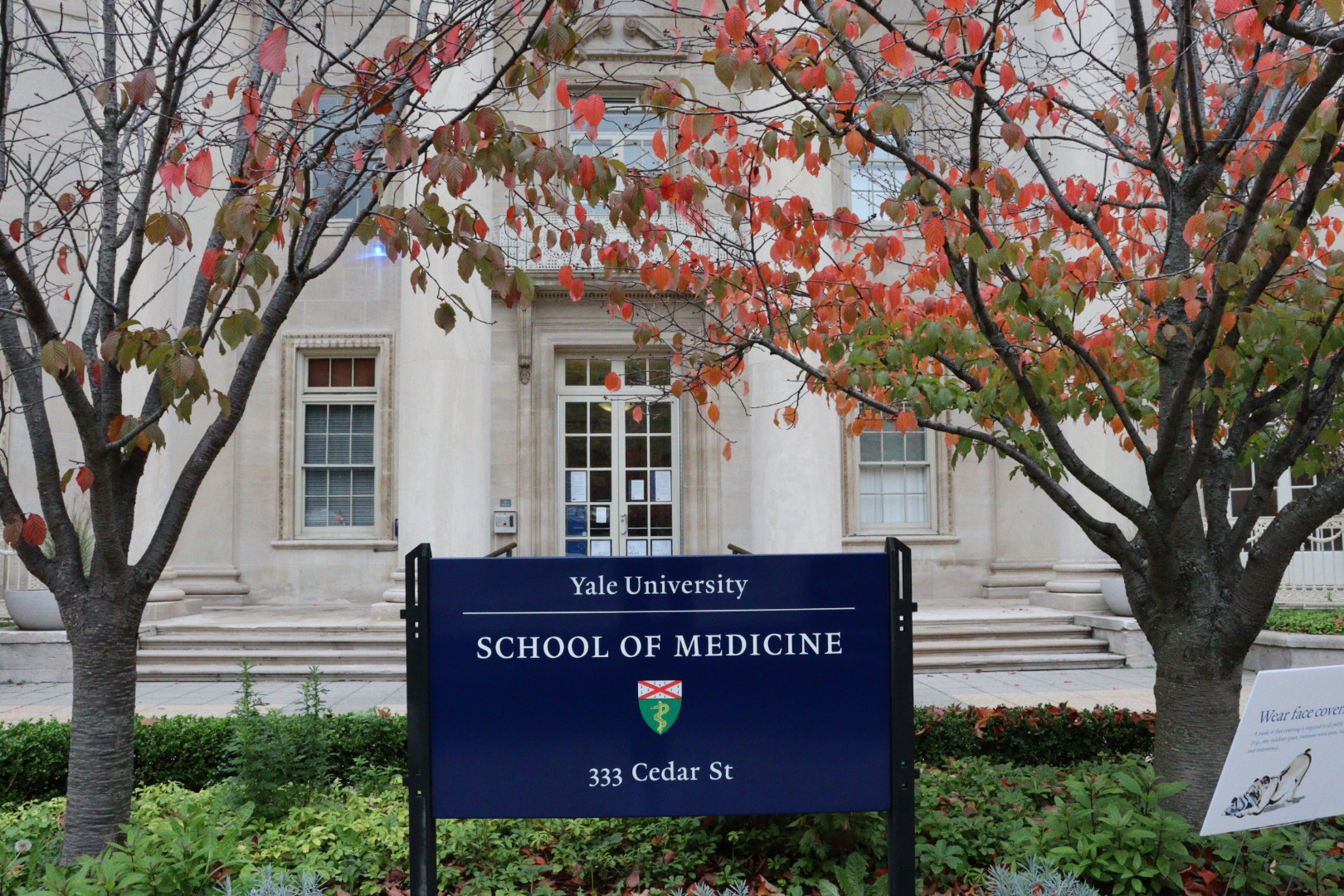Diving into the LISTEN Initiative
Data from wearable devices and discussion forums may be the missing piece of key clinical studies.

Hedy Tung
Through the LISTEN Initiative, Akiko Iwasaki and Harlan Krumholz are collaborating with long-covid patients to identify prominent yet underrecognized long-covid symptoms.
Iwasaki, an immunobiology professor at the School of Medicine, and Krumholz, a cardiology professor at the School of Medicine, founded the project in 2022. The LISTEN Initiative, which stands for Listen to Immune, Symptom and Treatment Experiences Now, works with patients enrolled in Hugo Health, a program founded by Krumholz that allows individuals to centralize their healthcare information — from their medical history to data from their personal wearables, like smartwatches.
Once patients with long-COVID symptoms consent to share their data with the LISTEN initiative, researchers analyze the data to identify common symptoms that are understudied in the medical community. At the same time, patients discuss their symptoms on Kindred, a network where patients and researchers can share their long-COVID stories.
“The LISTEN study created a community of what we call a kindred,” Mitsuaki Sawano, an associate research scientist on the LISTEN team, told the News. “[It] is kind of like a social media group itself.”
Sawano said that Kindred allows researchers to see live documentation of patient symptoms, or “monitored diaries,” where patients discuss with other patients and researchers to better describe their shared symptoms. Many experts have noted that long COVID presents differently in different patients, making treatment complicated.
For Sawano, this active communication is crucial for the LISTEN team. After highlighting common trends, Krumholz and Iwasaki host town halls with patients to discuss their findings and avenues for future research.
According to Krumholz, LISTEN’s holistic approach — encompassing all patient data from personal wearable devices to medical history — gives researchers a fuller understanding of the patient’s health.
“A one-time office-based blood pressure is not as good as a daily blood pressure measurement that you could get from a patient’s wearable,” Krumholz said.
For Krumholz, current methods of data collection pose a limitation to research studies. Many doctors struggle to understand the daily and long-term conditions of a patient’s health because they often obtain data during regularly scheduled visits.
Due to long COVID’s varied nature, the LISTEN initiative seeks to use more consistent data to learn how the disease manifests in different people.
“The major choke point is that we’re unable to do enough research studies fast enough to learn quickly enough about what works,” Krumholz said.
In addition to using quantitative healthcare data from patient profiles, the LISTEN study also conducts surveys to evaluate what patients are experiencing. Crucially, the surveys are created with patient symptoms in mind.
If patients report a new symptom, Krumholz, Iwasaki and others can study its prevalence and mechanisms.
“Then, somebody may say to us, ‘one of the things we’re experiencing is not on any questionnaires,’” Krumholz said.
In fact, one of the LISTEN initiative’s key studies came from patients describing a symptom that was not widely recognized as a sign of long COVID.
Patients told the researchers that they were experiencing “internal tremors,” a symptom that wasn’t listed on any of their evaluative surveys or well-described in medical research.
“We found that the internal tremor is contributing to the loss of quality of life in the patient’s eye in a significant way,” Iwasaki said. “We know of patients who really took their lives because of internal tremors. It’s a debilitating condition.”
Krumholz added that patients also contributed to the research process by describing what alleviates or worsens the tremors. During subsequent town halls, researchers and patients discussed potential research directions to help find adequate treatment options.
Krumholz contrasted patients in the LISTEN initiative with those participating in other studies. Krumholz found that many patients, especially those with long COVID, feel that physicians dismiss their symptoms, suggesting that this could be due to the fundamental way physicians are trained.
“Doctors are trained in pattern recognition,” Krumholz said. “When doctors are confronted with something that doesn’t fit the pattern that they’ve been taught about, then they often feel that it either doesn’t exist or they don’t know how to process it.”
According to Bornali Bhattacharjee, an associate research scientist who works in Iwasaki’s lab, the LISTEN initiative tries to combat these traditional medical biases by crowdsourcing patient experiences via Kindred and obtaining continuous patient data. The LISTEN researchers organize and highlight the severity of many unofficially-recognized symptoms.
Bhattacharjee said that without widespread holistic data, many patient symptoms remain under-researched.
“In order to validate an actual symptom of something, there needs to be a mass categorization to prove that something is actually occurring,” Bhattacharjee said.
Still, Sawano and Krumholz both noted that the initiative’s biggest challenge is deciding where they should continue to pursue research.
“The interpretation of science still has subjectivity associated with it,” Krumholz said. “Science needs to drive [research], but you’re still trying to mediate different opinions about what the science means.”
However, they see this disagreement as a necessary process to better understand a patient’s health.
“It’s a team effort, and it does involve a lot of going back and forth and communication,” Sawano said. “But I think that’s part of the process. And I think that’s going to improve science.”
Patients in the Kindred network who are 18 or older can participate in the LISTEN study







